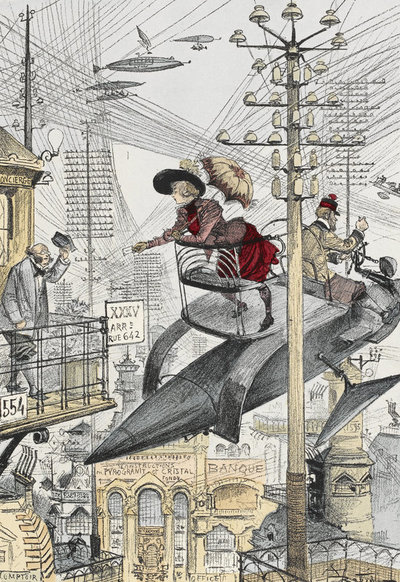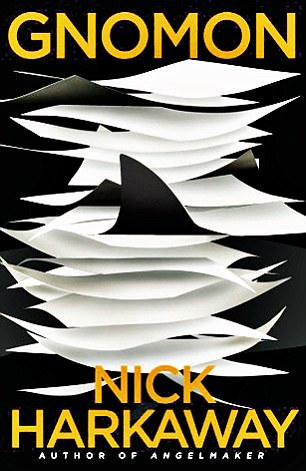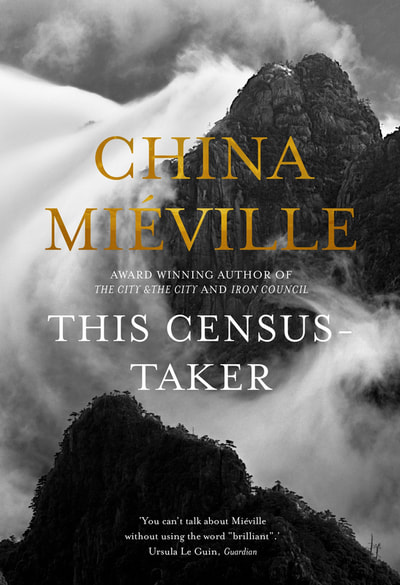|
Nick Harkaway, Gnomon, William Heinemann, 2017. Did I like or did I dislike Gnomon? To be entirely honest with you, I'm still not sure. Probably both at the same time. Diana Hunter lived apart from her society. Her house was a Faraday cage: the all-seeing, all-knowing network couldn't get a glimpse on what happened in it. She was using a pen and paper. She didn't broadcast on the network her every thoughts. She was also a writer. But the Witness was worried about such an individual who refused the transparent society she was living with. Arrested and brought in for a mind probing, she died during the procedure. Now it's Inspector Mielikki Neith's task to uncover what happened as she opens in her own mind the record of Hunter's interrogation. "Aha! A dystopia!" are you saying. It is: surveillance state, direct democracy (with all the flaws and none of the upsides), a panopticon machine. Gnomon checks all the boxes of the 1984-like dystopias, written for our social media age, without forgetting Skynet and other artificial intelligence dystopian stories. But, somehow, I felt the world building was just that: a by-the-book early 21st century adult dystopia. The writer of Angelmaker had had me expecting a bit more creativity and I felt slightly let down by it. Gnomon is also a stories-within-a-story novel. It's kind of a problem when the reader (in this instance, me) never got over If By a Winter's Night a Traveler... by Italo Calvino (and also studied Jacques the Fatalist and his Master by Denis Diderot, but that's another story...) Harkaway acknowledges the Calvino connection, not to mention Scheherazade and other novels representative of this genre and throws in Baudrillard (I suppose Ricoeur was already taken by Miéville). But when Calvino is playfully breaking narrative codes, Harkaway is stuck in a grim detective story set in a dystopia. In a sense, Gnomon, as an iconoclast novel playing with narrative analysis or structures, comes much too late in my reading life: my heart is already taken by Calvino and Miéville and I feel like this novel failed to bring something else the other two haven't. Nonetheless, it isn't a sterile game. Harkaway uses the stories within the story to build the sense of a detective novel. We go, along with Neith, from one story to the other, picking up the clues, trying to unravel the mystery of who Diana Hunter was and of what happened to her. Frankly, I applaud the tour de force: it is masterfully done and it brings you to a moral conclusion nicely with a neat twist along the way. I really liked Diana Hunter's voice: she was smart, witty, sharp and thorny. Each of her appearance is a delight. But Neith we mainly follow? Aye, there's another rub! She barely has time to appear that we are taken to the first story within a story. She barely has time to be developed that another more intriguing story appears. To me, she suffers from an acute case of blandness. Sure, that was called for, but it made it hard to care for her. Happily, the novel is saved not only by Diana Hunter, but also by the characters from the side stories, and Athenais was a particular highlight for me. Gnomon, to me, suffered from being not on par with other novels in the same vein and that I enjoyed more. But it has some undeniable qualities: it is remarkably written, some of the characters are truly alive and hard to forget, and it dares you to follow it in a labyrinthine story. Should you read it? If you are a genre reader who enjoy the literary side of it, with an added touch of crime fiction, and who don't fear a sprawling narrative, then yes, definitely. But afterwards, make this reviewer happy and read If by a Winter's Night a Traveler by Calvino... ! The writer's website. If you've liked Gnomon, you may also like
0 Comments
Your comment will be posted after it is approved.
Leave a Reply. |
All reviews are spoiler free unless explicitly stated otherwise.
I only review stories I have liked even if my opinion may be nuanced. It doesn't apply for the "Novels published before 1978" series of blog posts. Comments are closed, having neither time nor the inclination to moderate them. |
WHAT IS THE MIDDLE SHELF?
The middle shelf is a science-fiction and fantasy books reviewS blog, bringing you diverse and great stories .
PLEASE SUPPORT AUTHORS.
IF YOU LIKE IT, BUY IT. |
ON THE MIDDLE SHELF
|
KEEP IN TOUCH WITH THE MIDDLE SHELF
|





 RSS Feed
RSS Feed
